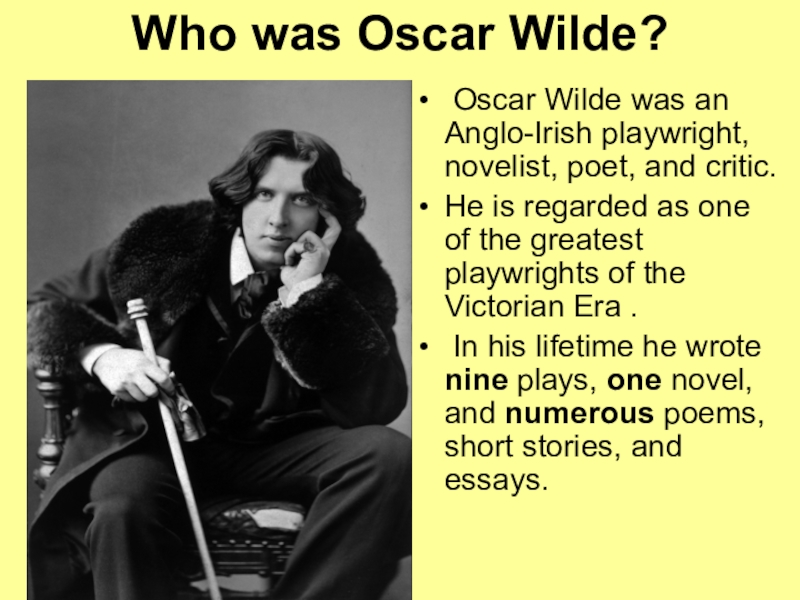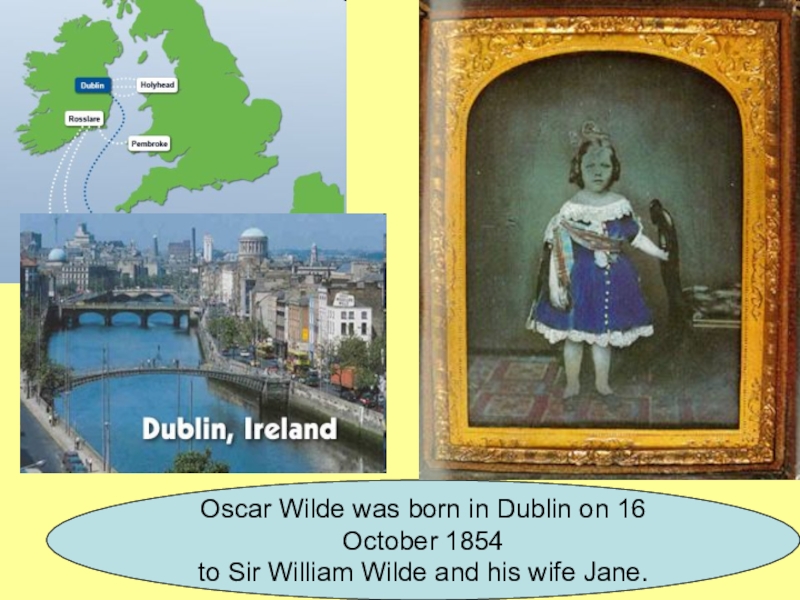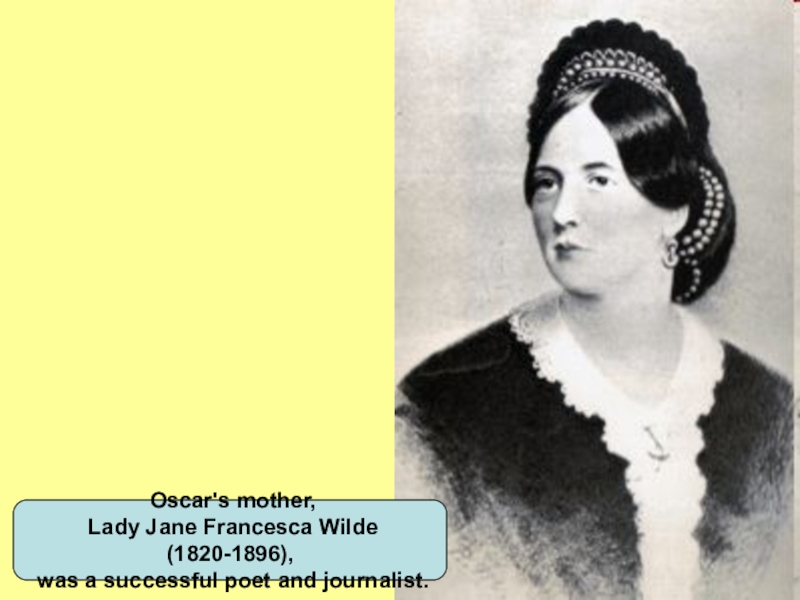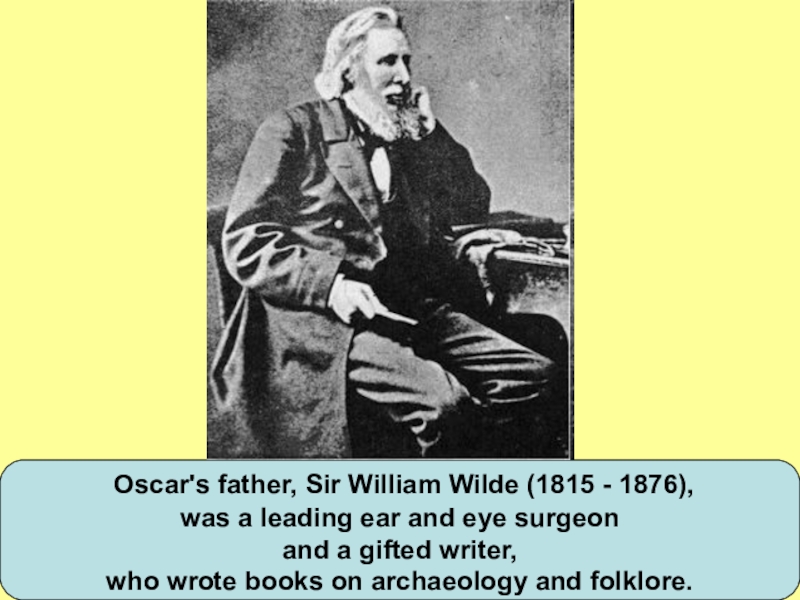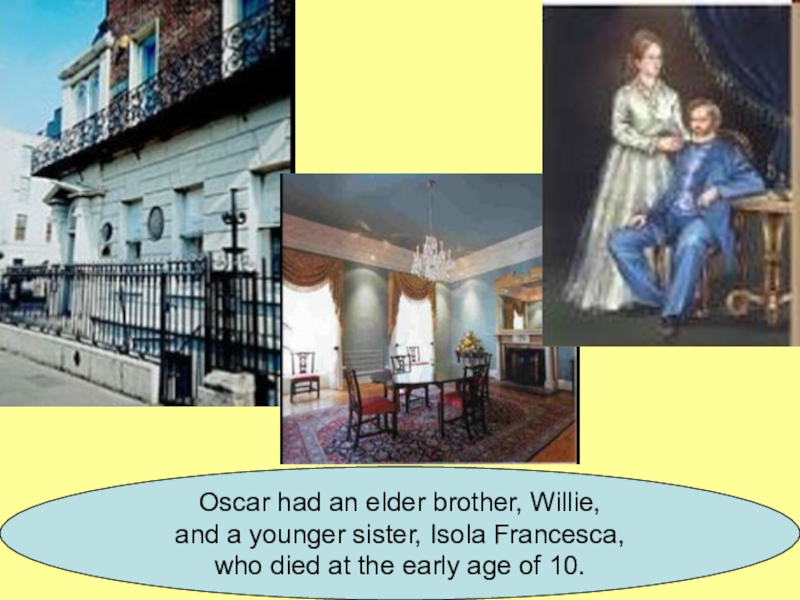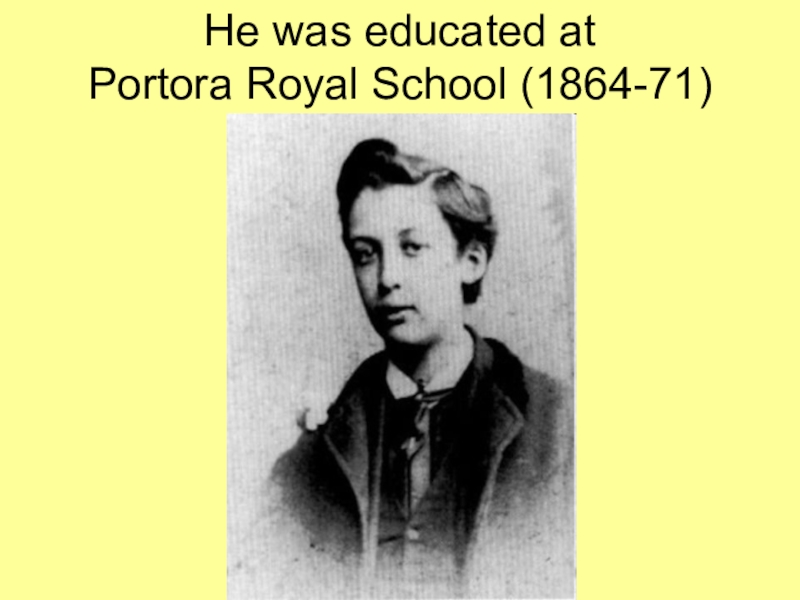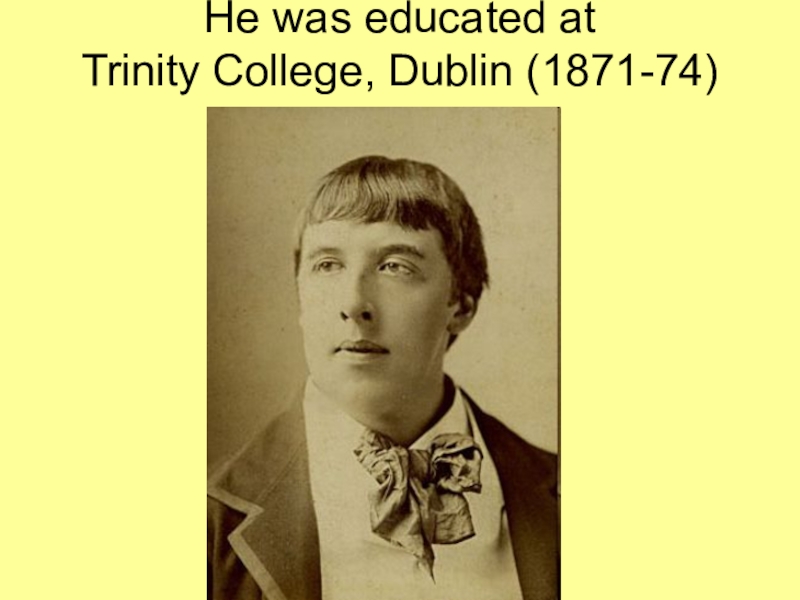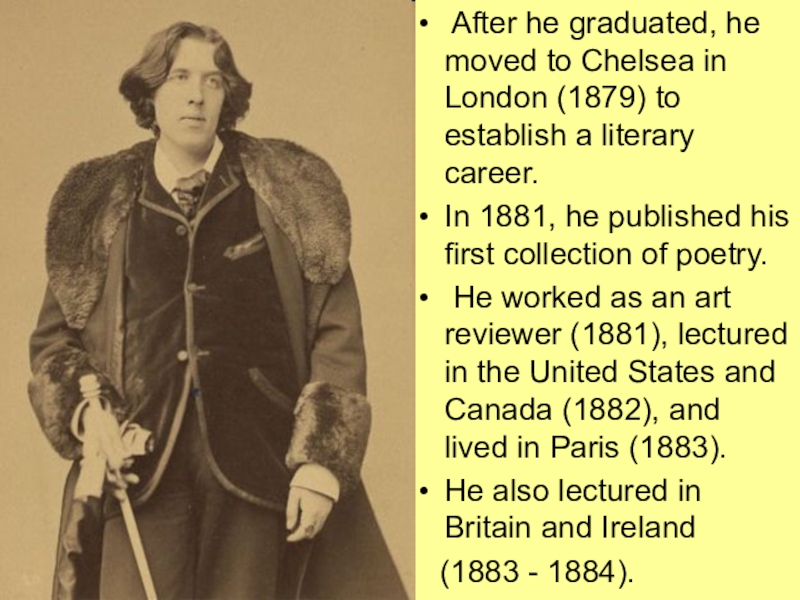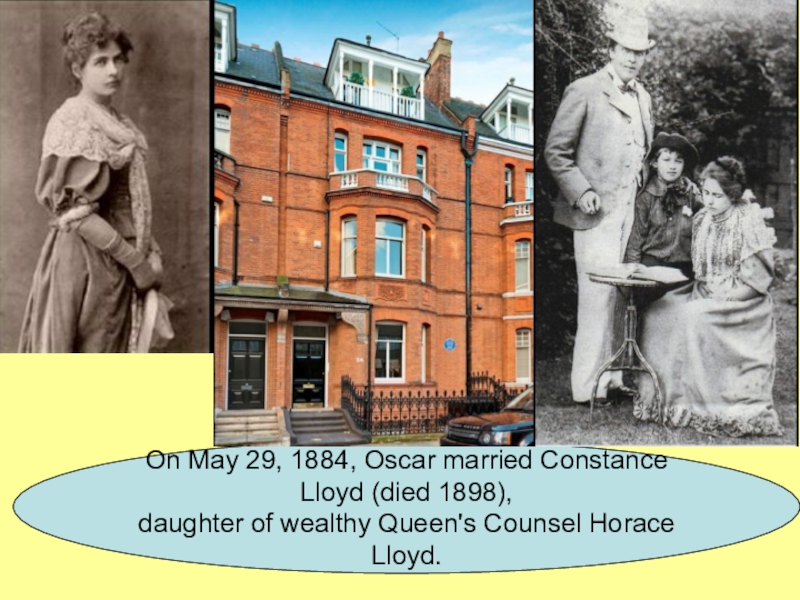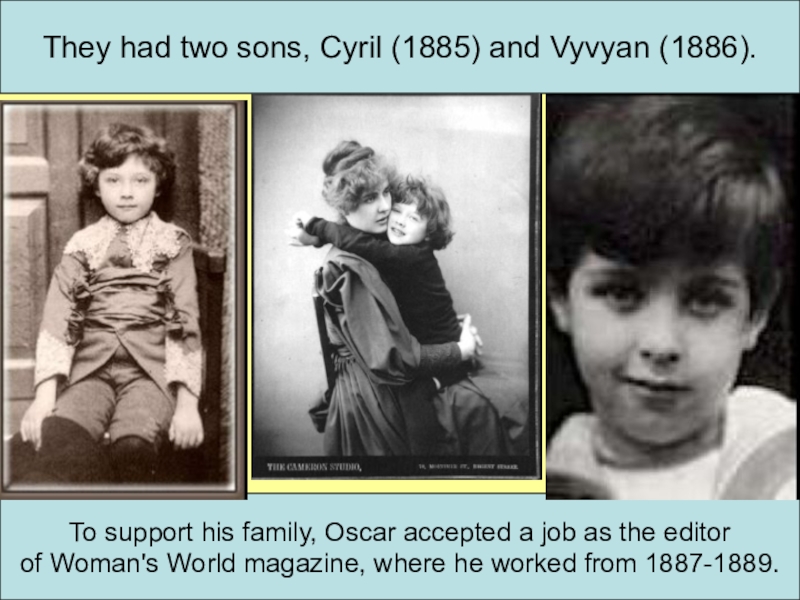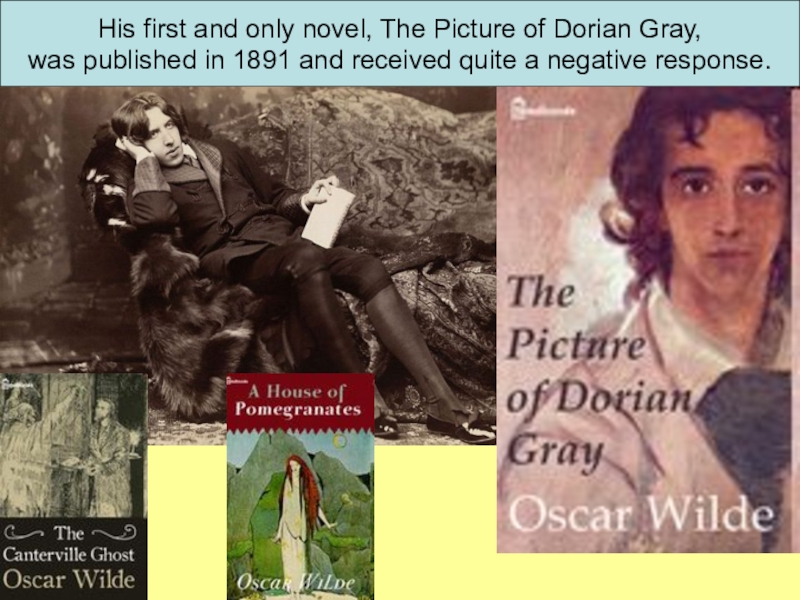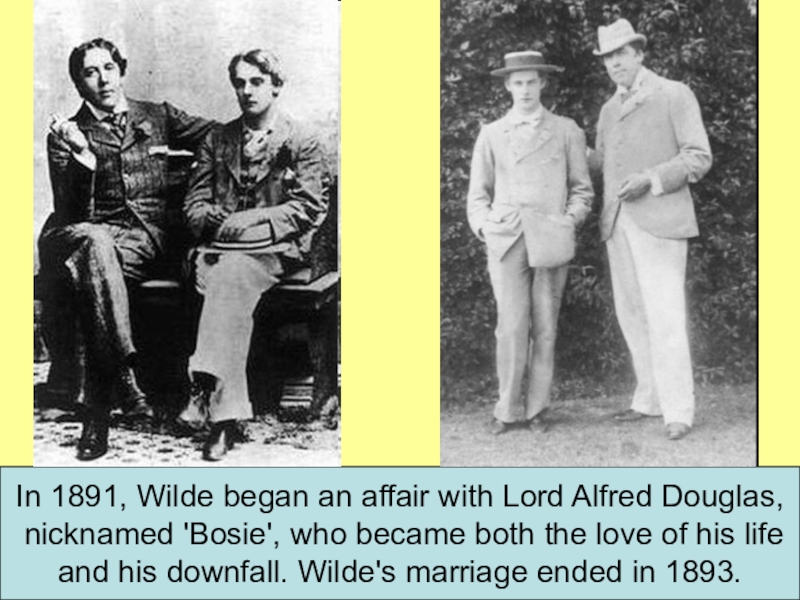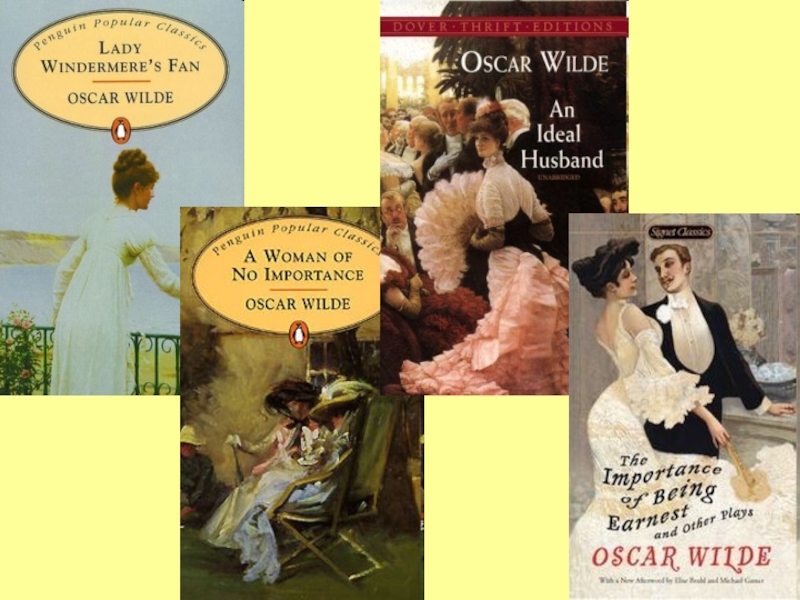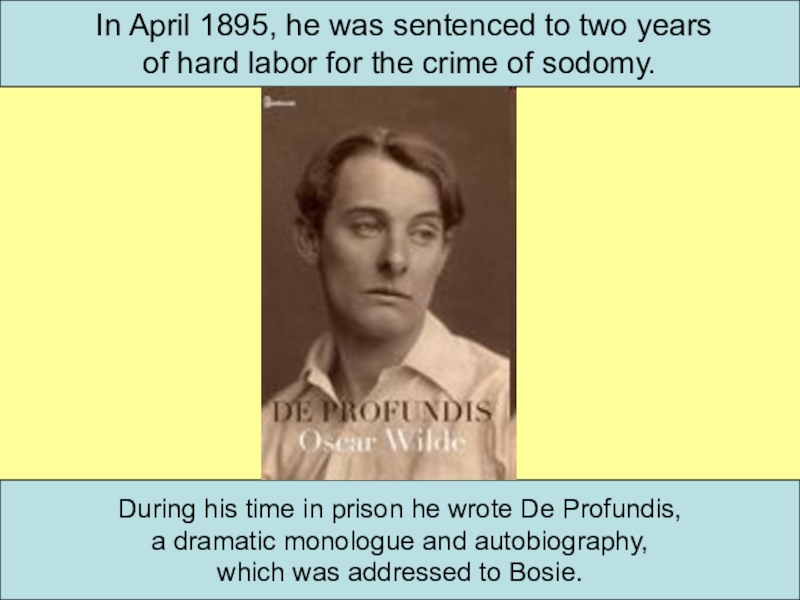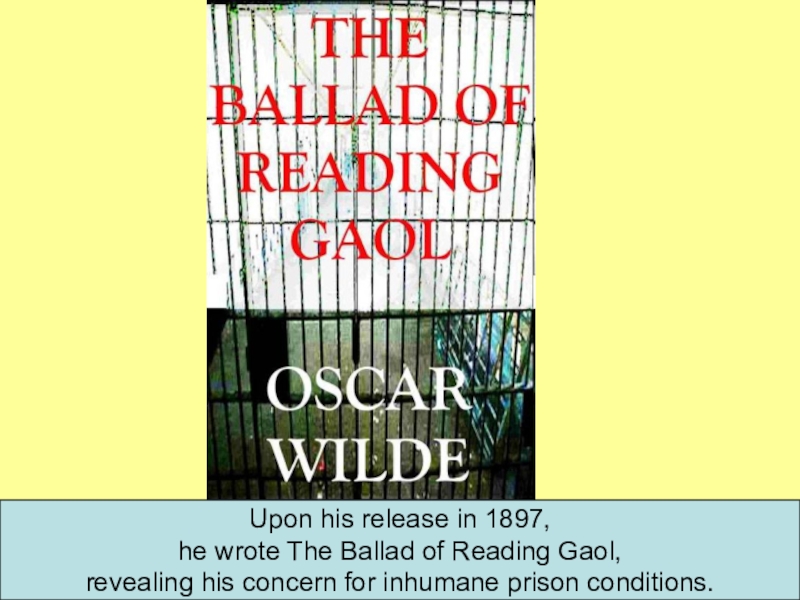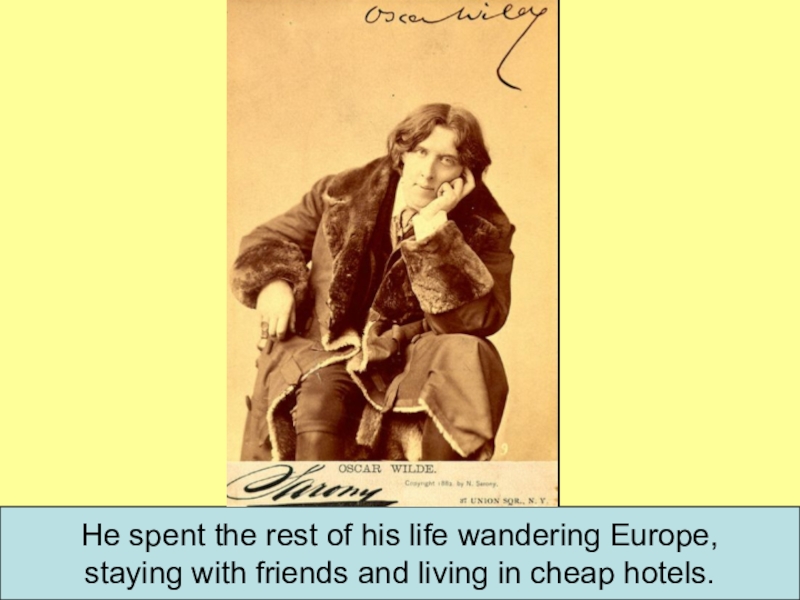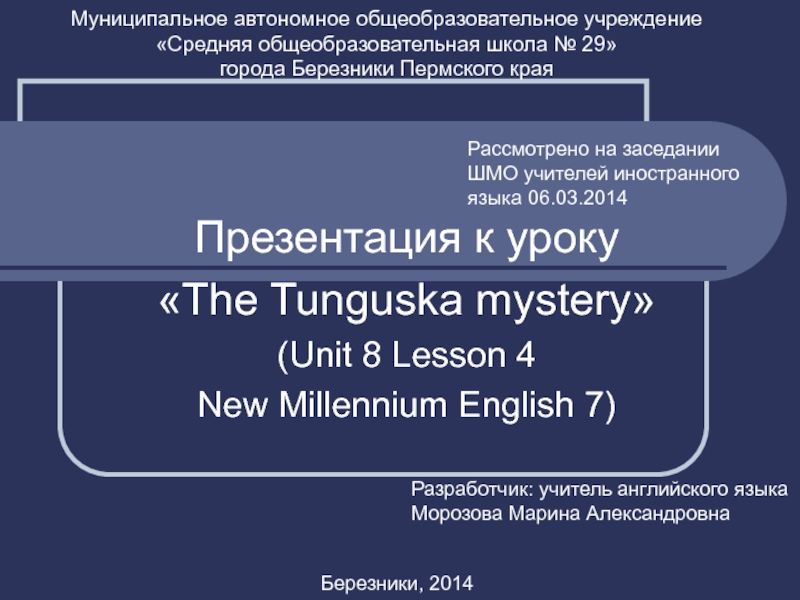Слайд 1Who was Oscar Wilde?
Oscar Wilde was an Anglo-Irish playwright,
novelist, poet, and critic.
He is regarded as one of
the greatest playwrights of the Victorian Era .
In his lifetime he wrote nine plays, one novel, and numerous poems, short stories, and essays.
Слайд 2Oscar Wilde was born in Dublin on 16 October 1854
to Sir William Wilde and his wife Jane.
Слайд 3 Oscar's mother,
Lady Jane Francesca Wilde (1820-1896),
was a
successful poet and journalist.
Слайд 4 Oscar's father, Sir William Wilde (1815 - 1876),
was
a leading ear and eye surgeon
and a gifted writer,
who wrote books on archaeology and folklore.
Слайд 5Oscar had an elder brother, Willie,
and a younger sister,
Isola Francesca,
who died at the early age of 10.
Слайд 6He was educated at
Portora Royal School (1864-71)
Слайд 7He was educated at
Trinity College, Dublin (1871-74)
Слайд 8He was educated at Magdalen College, Oxford (1874-78).
While at
Magdalen, he won the 1878 Newdigate Prize
for his poem
Ravenna.
Слайд 9 After he graduated, he moved to Chelsea in London
(1879) to establish a literary career.
In 1881, he published
his first collection of poetry.
He worked as an art reviewer (1881), lectured in the United States and Canada (1882), and lived in Paris (1883).
He also lectured in Britain and Ireland
(1883 - 1884).
Слайд 10On May 29, 1884, Oscar married Constance Lloyd (died 1898),
daughter of wealthy Queen's Counsel Horace Lloyd.
Слайд 11To support his family, Oscar accepted a job as the
editor
of Woman's World magazine, where he worked from 1887-1889.
They had two sons, Cyril (1885) and Vyvyan (1886).
Слайд 12 In 1888, he published The Happy Prince and Other
Tales,
fairy-stories written for his two sons.
Слайд 13His first and only novel, The Picture of Dorian Gray,
was published in 1891 and received quite a negative response.
Слайд 14In 1891, Wilde began an affair with Lord Alfred Douglas,
nicknamed 'Bosie', who became both the love of his life
and his downfall. Wilde's marriage ended in 1893.
Слайд 15 Wilde's greatest talent was for writing plays.
His first
successful play:
Lady Windermere's Fan,
A Woman of No Importance
(1893),
An Ideal Husband (1895),
The Importance of Being Earnest (1895).
Слайд 17 In April 1895, he was sentenced to two years
of hard labor for the crime of sodomy.
During his
time in prison he wrote De Profundis,
a dramatic monologue and autobiography,
which was addressed to Bosie.
Слайд 18Upon his release in 1897,
he wrote The Ballad of
Reading Gaol,
revealing his concern for inhumane prison conditions.
Слайд 19He spent the rest of his life wandering Europe,
staying with
friends and living in cheap hotels.
Слайд 20He died of cerebral meningitis on November 30, 1900,
penniless,
in a cheap Paris hotel.
